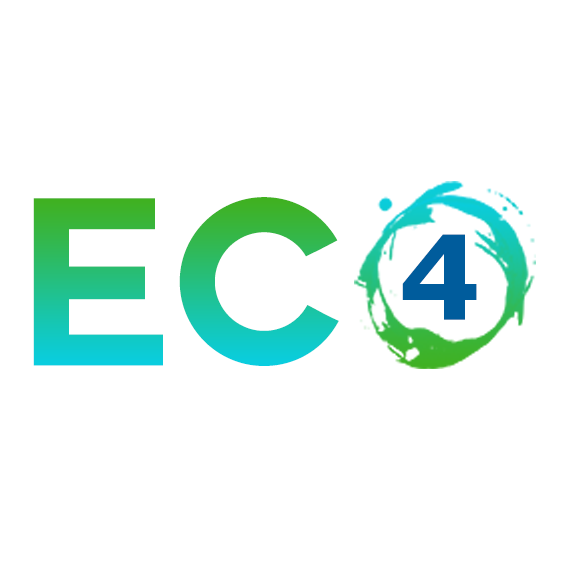ECO FUNDING
FULLY FUNDED
Improving the quality of your home at no cost
with energy efficient solutions
What is ECO Funding?
ECO Funding typically refers to the Energy Company Obligation (ECO) scheme, a government-funded initiative in the UK that assists homeowners and tenants in enhancing their homes’ energy efficiency. Funded by energy companies, the program aims to lessen carbon emissions and fuel poverty.
Here’s a breakdown of the key aspects of ECO Funding:
Eligibility:
- Homeowners or tenants in England, Wales, and Scotland can apply.
- Property EPC Rating D, E, F or G. (Click here to find yours)
- Qualification is based on factors like property type, household income, and receipt of specific benefits (e.g., Child Benefit, Pension Guarantee Credit).
Measures funded:
- Insulation (loft, cavity wall, solid wall)
- Heating system upgrades (boilers, controls)
- Renewable energy technologies (solar panels, air source heat pumps)
Funding amount:
- Varies depending on the type of funding, measure, household circumstances, and energy supplier.
- ECO is not a grant; some contribution from the beneficiary might be required.
Application process:
- If you feel you fit the criteria to qualify for ECO Funding, Contact us or call on 0121 392 7118 to check your eligibility and available measures.
- If everything checks out from a desktop survey, we will arrange an assessment and, if approved, coordinate installation.
Benefits of ECO Funding :
- Lower energy bills
- Reduced carbon footprint
- Warmer and more comfortable home
Current status:
- The latest iteration, ECO4, is active until March 31, 2026.
- Key changes in ECO4 include:
- Increased focus on vulnerable households.
- Broader range of measures eligible for funding.
- Greater flexibility for energy suppliers in meeting their obligations.
Remember, specific eligibility criteria, funded measures, and application processes might differ slightly based on your location and the type of funding you qualify for. Contact Us directly, and we can walk through which funding applies to your situation and how to get the most out of ECO Funding.

What funding Schemes do we work with ?
Bee Eco are actively working on ECO 4 and GBIS, as of current.
ECO 4
ECO 4 funding refers to the fourth iteration of the Energy Company Obligation (ECO) scheme in the UK. It’s a government-backed initiative that helps homeowners and tenants improve their homes’ energy efficiency, thereby reducing carbon emissions and fuel poverty.
Key features of ECO 4 funding:
- Active period: April 2022 to March 2026
- Funding amount: £4 billion
- Focus:
- Greater support for vulnerable households: Prioritizes low-income, fuel-poor individuals and families.
- Deeper retrofit for least efficient homes: Aims to upgrade homes in energy efficiency bands E, F, and G to at least band C or D.
- Wider range of measures funded: Includes insulation, heating upgrades, renewable energy technologies, and district heating connections.
- Delivery channels:
- Energy suppliers directly install measures in eligible homes.
- Local authorities can refer households to the scheme.
Benefits of ECO 4 funding:
- Lower energy bills: Improved energy efficiency means reduced energy consumption and lower costs.
- Reduced carbon footprint: More energy-efficient homes contribute to combating climate change.
- Warmer and more comfortable homes: Better insulation and heating systems create a more pleasant living environment.
Eligibility for ECO 4 funding:
- Homeowners or tenants in England, Wales, and Scotland can apply.
- Specific eligibility criteria depend on factors like:
- Property type (house, flat, etc.)
- Household income
- Receipt of certain benefits
- Energy efficiency rating of your home
How to apply for ECO 4 funding:
- Contact your energy supplier: They will assess your eligibility and available measures.
- Arrange a home survey: An assessor will visit your home to determine the most suitable upgrades.
- Receive funding confirmation: If approved, your supplier will coordinate installation of the measures.
Important resources:
- ECO4 website: https://www.gov.uk/government/consultations/design-of-the-energy-company-obligation-eco4-2022-2026
- Ofgem’s ECO4 FAQs: https://freeinsulationscheme.org.uk/eco-plus-scheme/
- Simple Energy Advice: https://www.digitalmarketplace.service.gov.uk/digital-outcomes-and-specialists/opportunities/16873
- Energy Saving Trust: https://energysavingtrust.org.uk/

GBIS
The Great British Insulation Scheme (GBIS) is a government-funded initiative in the UK aimed at improving energy efficiency in homes across the country. Launched in April 2023, the scheme builds upon the previous ECO+ program and aims to deliver energy efficiency upgrades to millions of homes over a four-year period.
Key features of GBIS:
- Target: Install a single, cost-effective insulation measure in at least 1.9 million homes by March 2026.
- Priority: Focuses on homes in the lower council tax bands with EPC ratings of D and below.
- Funding: £1 billion allocated from the government to support the scheme.
- Delivery: Energy suppliers collaborate with installers to deliver the installations.
- Benefits: Reduced energy bills, lower carbon emissions, warmer and more comfortable homes.
Eligible measures:
- Loft insulation
- Cavity wall insulation
- Solid wall insulation
Eligibility:
- Homeowners or tenants in England, Wales, and Scotland can apply.
- Specific eligibility criteria depend on factors like:
- Property type (house, flat, etc.)
- Household income
- Receipt of certain benefits
- Energy efficiency rating of your home
Applying for GBIS:
- Contact your energy supplier to check eligibility and available measures.
- They will arrange an assessment to determine the most suitable insulation option for your home.
- If approved, the supplier will coordinate the installation of the chosen measure.
Important resources:
- Gov.UK information on GBIS: https://www.gov.uk/government/statistics/great-british-insulation-scheme-release-december-2023: https://www.gov.uk/government/statistics/great-british-insulation-scheme-release-december-2023
- Simple Energy Advice: https://www.simpleenergyadvice.org.uk/: https://www.simpleenergyadvice.org.uk/
- Energy Saving Trust: https://energysavingtrust.org.uk/: https://energysavingtrust.org.uk/

HUGS
Home Upgrade Grant Scheme (HUGS):
- This program was a national scheme in the UK from 2020 to 2023 that offered eco funding specifically.
- It targeted low-income households living in off-gas grid homes, aiming to improve their energy efficiency and install low-carbon heating systems.
- The HUGS scheme closed to new applications on January 27, 2023, so it’s currently not operational.
- However, this may be an option in the for-seeable future.

LADS
The Local Authority Delivery Scheme (LADS) was a crucial component of the Green Homes Grant initiative in England, specifically Phase 2 and 3. This government-funded program aimed to improve energy efficiency in homes across the UK by providing grants for various measures like insulation, heating upgrades, and renewable energy technologies.
Here’s a breakdown of the LADS scheme:
Target audience:
- Low-income households: Eligibility primarily focused on individuals or families receiving specific benefits (e.g., Child Benefit, Pension Guarantee Credit).
- Low energy performance homes: Homes with Energy Performance Certificate (EPC) ratings of E, F, or G were prioritized.
Objectives:
- Reduce fuel poverty by supporting lower-income households with energy bills.
- Enhance energy efficiency in homes with poor performance, contributing to national carbon emission reduction goals.
Funding and measures:
- £500 million was allocated to local authorities through LADS.
- The scheme funded various energy efficiency measures, including:
- Insulation (loft, cavity wall, solid wall)
- Heating system upgrades (boilers, controls)
- Renewable energy technologies (solar panels, air source heat pumps)
Delivery:
- Local authorities managed and delivered the scheme within their areas.
- Residents applied directly to their local council for assessment and potential funding.
Current status:
- Unfortunately, LADS is no longer accepting new applications. The final phase concluded in March 2026.
Alternative options:
- While LADS has closed, other eco-funding schemes are available in the UK. Here are some potential alternatives:
- Energy Company Obligation (ECO) scheme: Supports energy efficiency improvements in homes, though eligibility and measures might differ slightly.
- Boiler Upgrade Scheme: Offers vouchers for replacing gas boilers with air source heat pumps.
- Help to Grow schemes: Provides vouchers for SMEs to invest in green initiatives like energy efficiency and waste reduction.
Important resources:
- Gov.UK information on LADS: https://www.gov.uk/government/publications/green-homes-grant-local-authority-delivery-scheme-phase-2-funding-allocated-to-local-net-zero-hubs: https://www.gov.uk/government/publications/green-homes-grant-local-authority-delivery-scheme-phase-2-funding-allocated-to-local-net-zero-hubs
- Simple Energy Advice: https://www.simpleenergyadvice.org.uk/: https://www.simpleenergyadvice.org.uk/
- Energy Saving Trust: https://energysavingtrust.org.uk/: https://energysavingtrust.org.uk/

